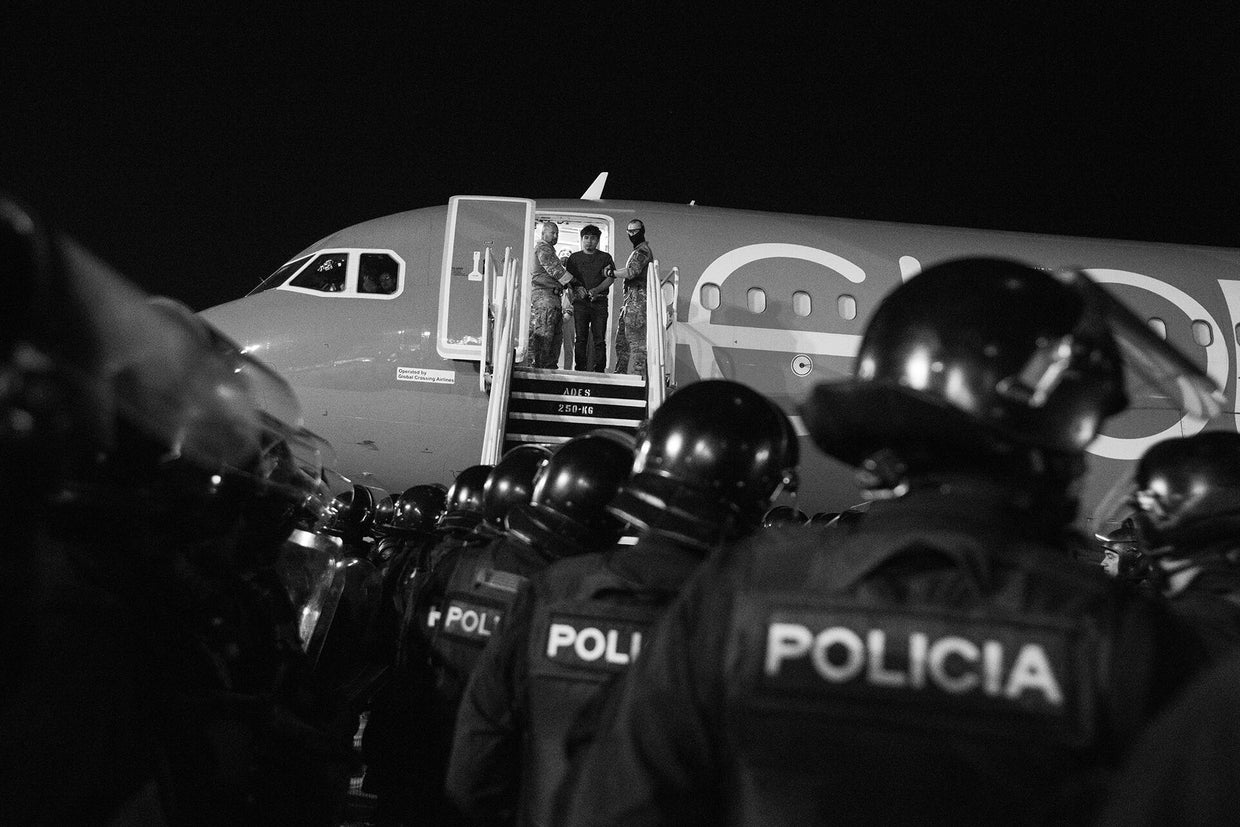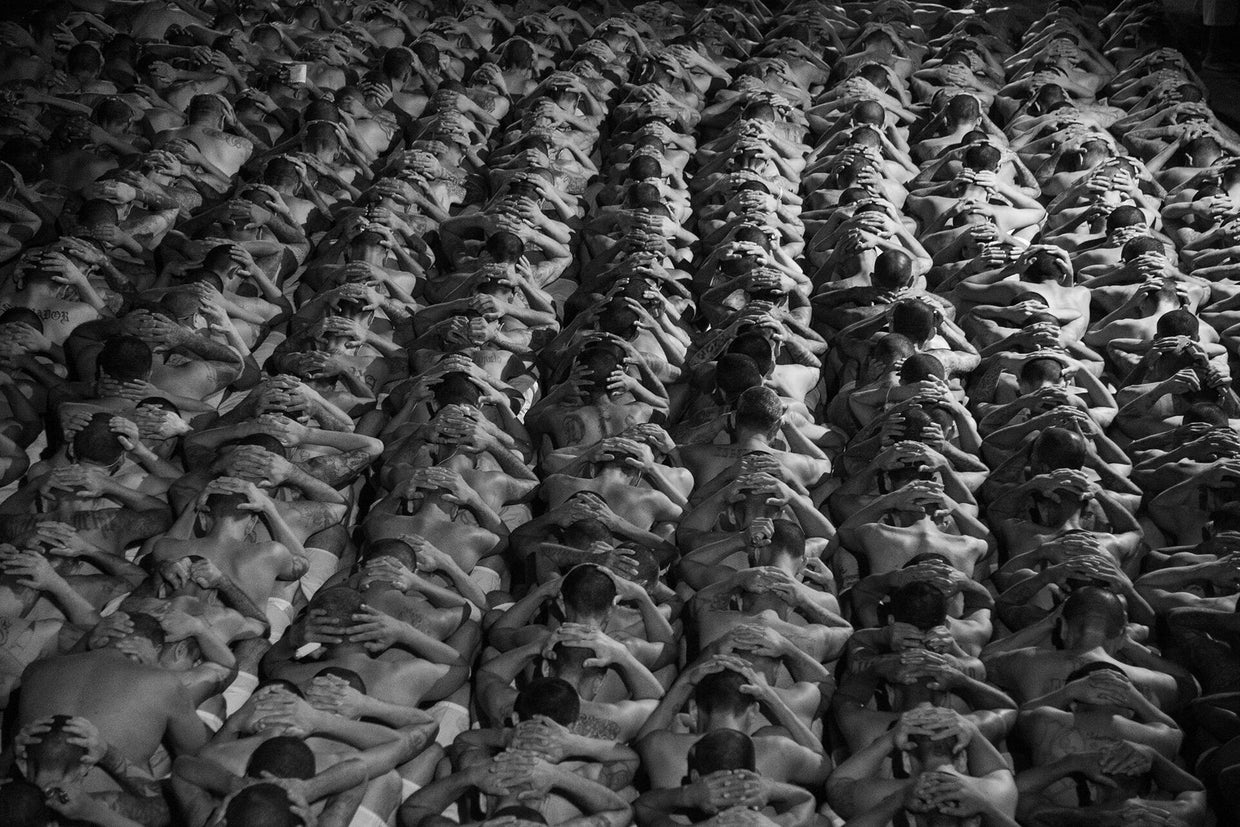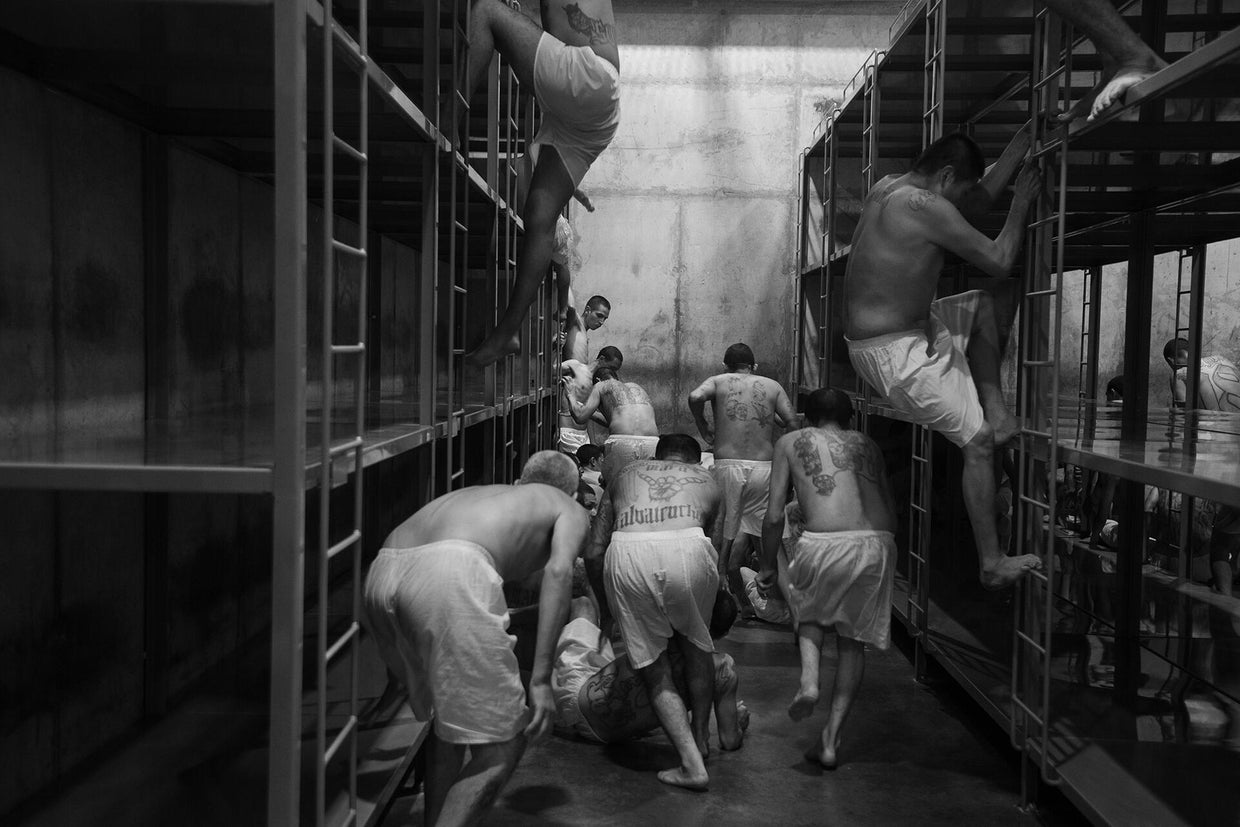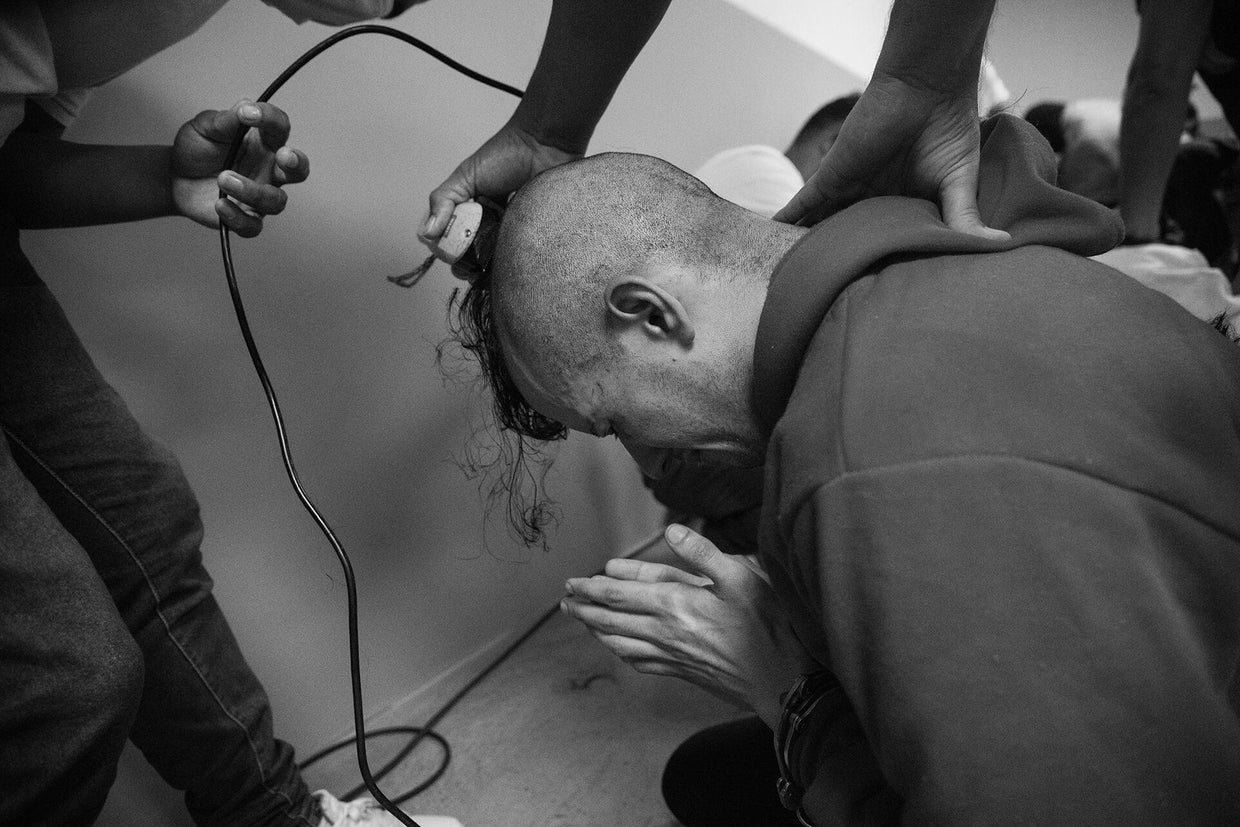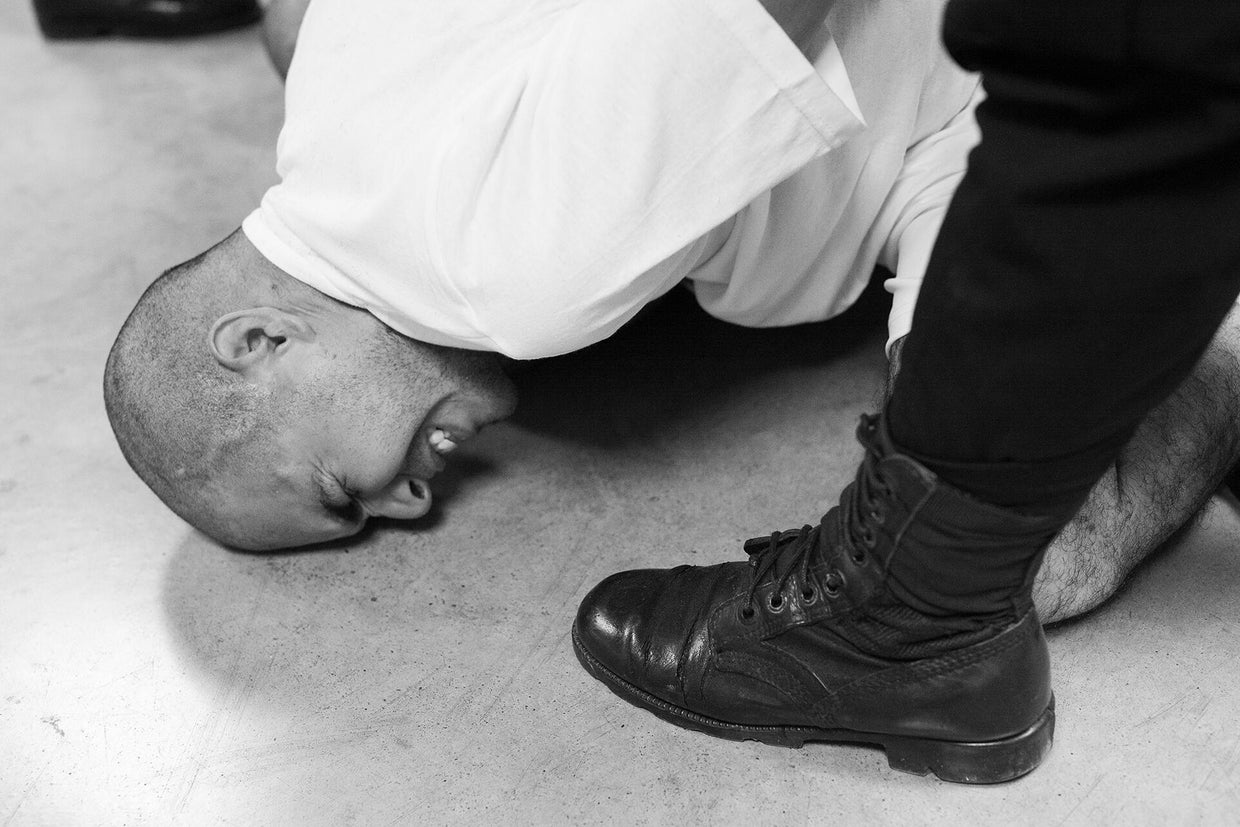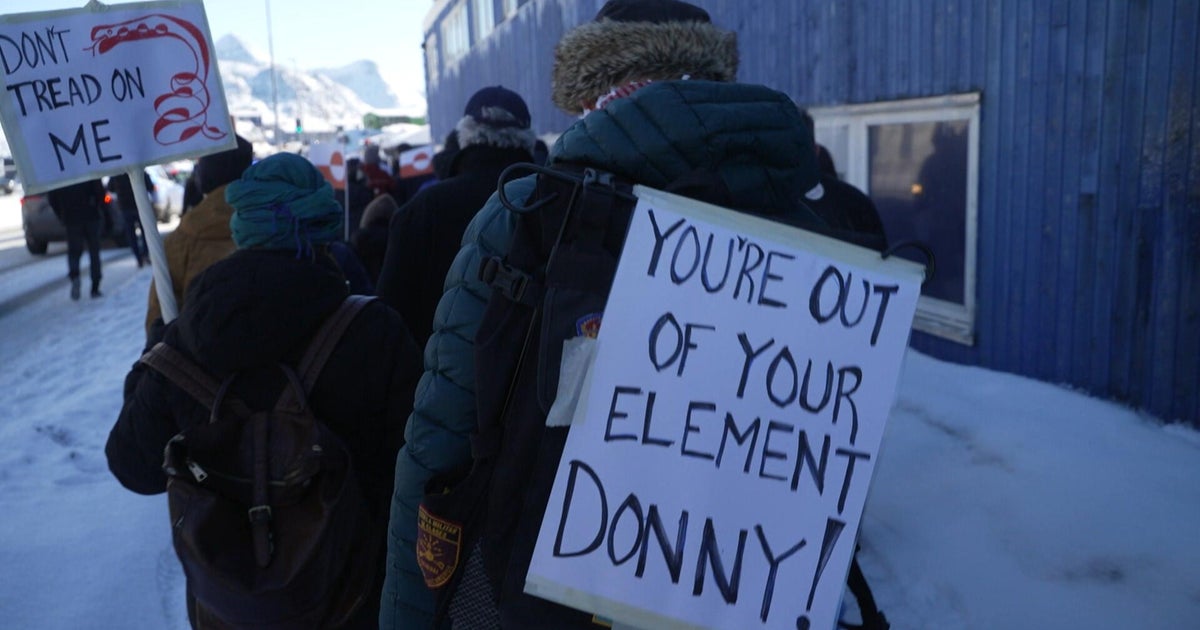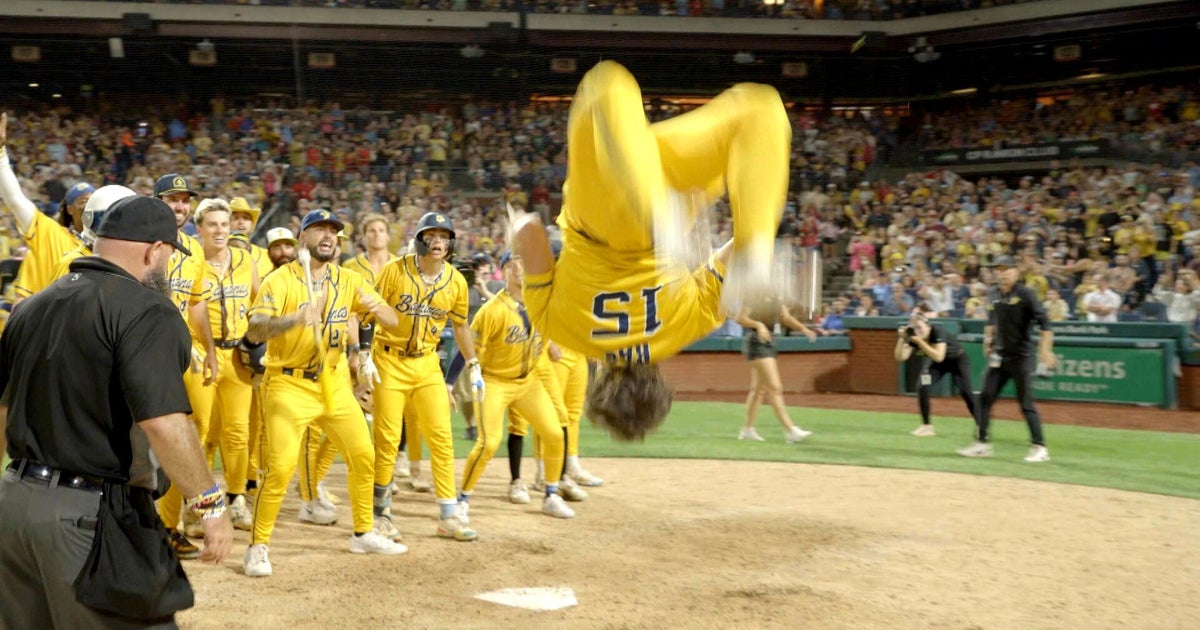Photojournalist witnesses Venezuelan migrants' arrival in El Salvador: "They had no idea what was coming"
Three weeks ago, photojournalist Philip Holsinger stood on a tarmac in El Salvador waiting for three planes to arrive, cameras slung across his body.
He was told the planes were carrying Venezuelan migrants from the United States who would become inmates at the Terrorism Confinement Center, a notorious prison in El Salvador also known as CECOT.
As the Venezuelans emerged from the door to make their way down the gangplank, their faces dropped.
"They're greeted by this scene, a sea of black-clad, masked police in riot gear," Holsinger told 60 Minutes Overtime.
"I've looked through my lens at many types of faces, laughing, crying, terrified, angry… they had no idea what was coming."
A 60 Minutes report this week found that a majority of the Venezuelans who arrived in El Salvador that day have no apparent criminal record.
In response to these findings, a Department of Homeland Security spokeswoman told 60 Minutes that many of those without criminal records "are actually terrorists, human rights abusers, gangsters, and more. They just don't have a rap sheet in the U.S."
El Salvador's gang crackdown
Holsinger has spent over a year in El Salvador, documenting the government's controversial crackdown on violent gangs like MS-13 and Barrio 18.
In March 2022, Salvadoran President Nayib Bukele declared a "state of emergency" to address gang violence in the country.
Then, a "state of exception" was approved by the Salvadoran legislature that suspended certain constitutional freedoms, allowing law enforcement to arrest and prosecute tens of thousands of people with alleged, or even suspected, gang ties. It's been renewed every month since.
The Salvadoran government claims over 85,000 arrests have been made under the state of exception.
The country, once known as the "murder capital of the world," closed 2024 with a record low of 114 homicides, according to their government statistics.
Human rights groups have heavily criticized the government's approach to gang violence, saying arrests are often made with little evidence, and without a fair and speedy trial.
Since 2022, the prison population in El Salvador has exploded. The current occupancy rate is nearly 163%, according to World Prison Brief.
Inside CECOT
Holsinger has photographed and interviewed inmates, including members of MS-13, in Salvadoran prisons, like Izalco Prison.
But the most notorious prison he's visited by far is CECOT.
Designed to house a population of over 40,000 people, it is known for its strict rules and spartan living conditions.
"Life in the cell, in CECOT, is the definition of austerity," Holsinger told Overtime.
"There are no books. There's no television… zero outside communication. Nothing goes out. Nothing comes in. There's 24-hour surveillance."
Inmates sleep on metal slabs, with no pillows or blankets. Unsolicited talking and eye contact with guards is generally prohibited, Holsinger said.
"When we walked into the cell block, I was shocked by the silence… it's like a church," Holsinger said.
"It got under my skin," Holsinger said. "Because it means something… Does it mean people are being treated bad, and they're quiet, or does it mean they just got order?"
Venezuelans become CECOT prisoners
When the Venezuelans deported from the U.S. arrived in El Salvador, officers used a standard procedure for CECOT inmates, grabbing them by the neck and pushing their bodies downward, as they walked them briskly toward the bus.
"They move them fast and hard. And they intentionally want them to feel that they're powerless," Holsinger told Overtime.
A Venezuelan man seated in one of the buses looked over at Holsinger's camera for a moment.
"When the guard noticed it, the guard grabs him by his hair and shoves his head back down," Holsinger told Overtime.
"That's the beginning of their lesson… which is total powerlessness."
After leaving the buses at the prison's entrance, the Venezuelans were brought into a room where teams of men buzzed their hair off.
Guards shouted commands to speed up the process, and slapped some of the Venezuelans who spoke up.
"The guards are [saying] 'Fast! Fast! Fast!'" Holsinger said.
Staring at a black-and-white photograph of a man with far-away eyes having his head shaved, Holsinger recalled what he was thinking when he took his picture.
"He may be a criminal. He may be innocent. He may be a father. I don't know his story at all. But I know his eyes," he said.
"He didn't fight… like, hopelessness. [He] just gave in."
Another man who caught Holsinger's attention shouted "I'm innocent" and "I'm gay," and was crying as his head was shaved.
60 Minutes has now identified that man as Andry Hernandez Romero.
He and the other Venezuelans were deported from the U.S. after President Trump invoked the Alien Enemies Act, claiming the men were members of Tren de Aragua, a Venezuelan gang.
Romero's lawyers told 60 Minutes that he is a 31-year-old gay makeup artist with no criminal record in the United States or Venezuela.
"He was being slapped every time he would speak up… he started praying and calling out, literally crying for his mother," Holsinger told Overtime.
"His crying out for his mother really, really touched me."
Romero and the other Venezuelans were ordered to strip naked and put on the CECOT uniform: a white shirt, white shorts and white rubber slippers.
Then they were forced to kneel in a line with their hands cuffed behind their backs, their bodies stacked against each other.
"This is a standard body posture that anybody in CECOT… will be trained in," Holsinger explained.
Finally, the men were pushed to the ground, their faces pressed to the concrete floor.
As Holsinger snapped the last few photographs, he felt that he had just watched the Venezuelan men become "ghosts."
"They've been stripped of their hair and their clothes… It's like your life just ceased to exist. You're just a person in white clothes now," Holsinger said.
"And it was a sense of watching people disappear."
The video above was produced by Will Croxton. It was edited by Sarah Shafer.
